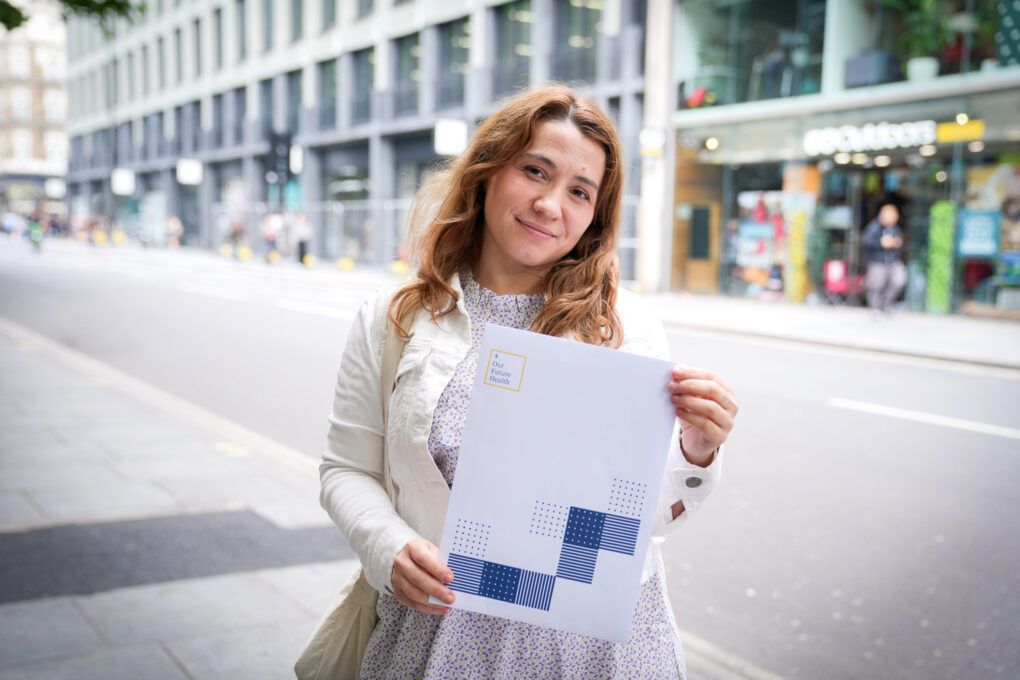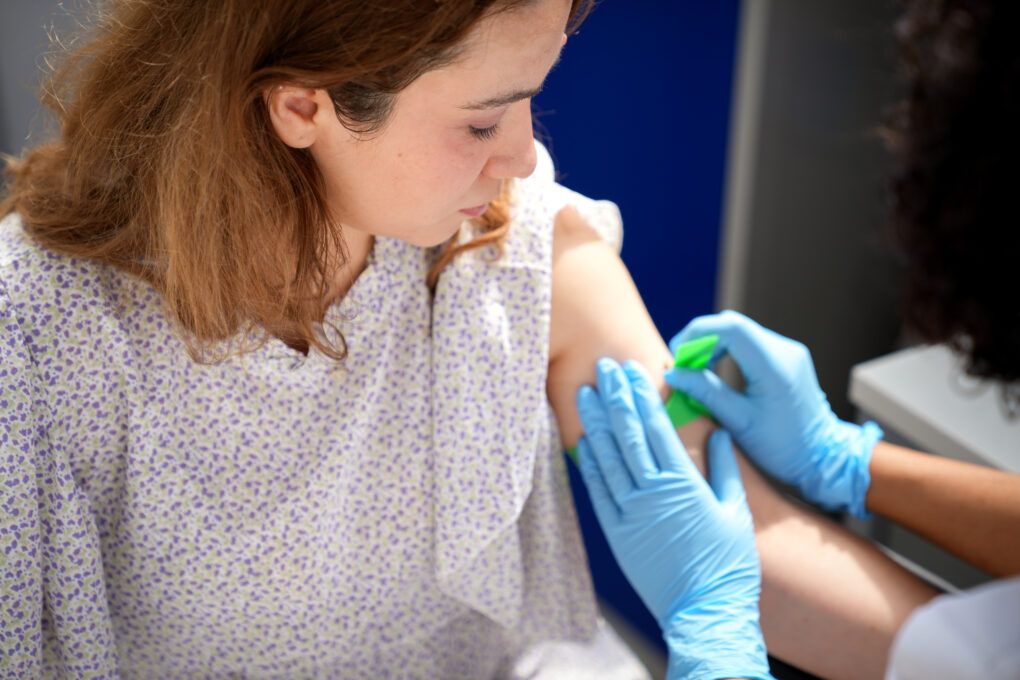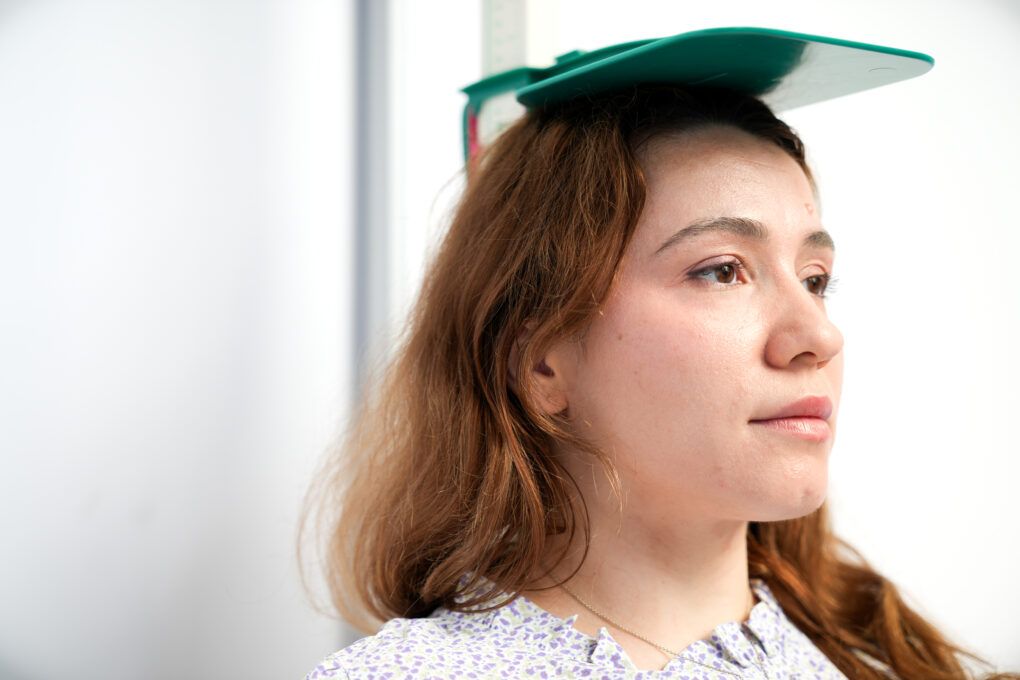‘I want to turn my struggle with mental health into something that helps others’

Upstairs in a Boots store on London’s Tottenham Court Road, a young woman emerges from a booth.
She’s holding a patterned envelope, and has a warm, somewhat relieved smile on her face.
That woman is 33-year-old artist and storyteller, Lara Pickle. She’s just become one of Our Future Health’s latest volunteers.
“I’m breathing a sigh of relief, because I was feeling slightly worried about having my blood taken, but it was all totally fine,” she laughs. “The member of staff who handled my appointment was so gentle.
“My whole thing was super quick, too. I gave two blood samples and had some measurements including my height and blood pressure taken. I’d say it all took about 10 minutes from start to finish.”
‘Things started to snowball’

Lara joined Our Future Health to support mental health research, after her own difficult experience.
Lara believes she first struggled with poor mental health as a teenager. In her mid-20s, it became unmanageable.
“I had so much stress and depression – it snowballed into overwhelming anxiety,” she says. “Like many others in this situation, I initially thought I just needed to push through it.
“But I ended up reaching a point where I just couldn’t anymore. I couldn’t get out of bed, I couldn’t sleep. I was crying at night because I couldn’t get any rest, and I was filled with anxiety about all the things I wanted to do but couldn’t manage.
“In 2020 I was prescribed antidepressants by my GP,” she says. “They referred me for cognitive behavioural therapy (CBT) too, which gave me the tools to manage my emotions.
“Since then, I’ve been open about my mental health because I want to make it less of a taboo subject so that improvements can be made.”
Genetics and women’s mental health
Last week, we announced that Our Future Health is now the world’s largest resource for mental health research. Insights from our data also revealed that 1 in 4 men and 1 in 3 women reported experiencing symptoms of depression in the 2 weeks before they filled out their Our Future Health questionnaire.
Lara says she wants to see researchers gain a better understanding of the role genetics can play in mental health conditions.
Research has found that having a close family member with depression or anxiety means you may be more likely to experience those things yourself.
“I feel there’s definitely a hereditary component for me, because my mum struggles with her mental health.”
Lara believes there could also be a hormonal component to their mental wellbeing. “We’ve both noticed how hormonal changes at different stages in our lives have affected us. For me, many of my struggles kicked in at puberty. My mum is now going through the menopause, and it’s impacting her mental health.”
Today, managing her monthly cycle alongside her mental health can still be challenging for Lara.
“Despite my medication, my mood plummets the week before my period. I find it frustrating that drug design still seems to ignore hormonal fluctuations. It’s 2025 – I’d love it if we could have antidepressants designed to work alongside women’s cycles soon.
“If joining Our Future Health helps to advance research into this kind of thing, I’m more than happy to join. It feels worthwhile to contribute to something that could change the way we understand the overlaps between genetics, mental health, and women’s cycles.”
Side-effects and precision medicine

The antidepressants Lara was first prescribed helped her temporarily. But after a while the side effects became too much.
“I started on escitalopram,” she says. “It was prescribed over the phone during the pandemic, and my GP just gave me what they thought might work. It helped for a bit, but eventually I just felt numb.
“I’ve always been someone who feels deeply. When I’m happy, I’m really happy, and when I’m sad, I feel it intensely. But this antidepressant made me feel nothing. I talked to my GP, and they switched me onto a different one. It was a little better, but not by much. Some really positive things happened to me during that time, but I couldn’t feel any joy about them.
“I ended up spiralling into a depressive state again because of this, and stopped taking my medication, which I now know was dangerous.”
Lara spoke to her therapist, who suggested seeing a private psychiatrist for more tailored care. This psychiatrist was eventually able to find an antidepressant that works for Lara, alongside ongoing eye movement desensitisation and reprocessing (EMDR) and acceptance and commitment (ACT) therapies.
“I know the NHS is overstretched, so this level of personalisation isn’t yet within reach. But we urgently need therapies guided by our genetics that get people like me onto more tailored treatment paths from day one.”
‘The future of mental healthcare looks bright’
Lara says her mental health journey has taught her a lot. She now uses creativity – be it writing, drawing or painting – to help her manage her wellbeing. In 2023, Lara created a poem and video about mental health, which you can watch above.
She hopes our programme helps to facilitate change, so that others don’t have to go through years of trial and error before getting the prescription that works for them.
“If mental health research can help speed up accurate diagnoses and tailored treatment plans, more people will be able to get back up again and rebuild their lives after stumbling.
“Being a part of Our Future Health – the world’s largest resource for mental health research – makes me feel incredibly proud.
“It means a lot to contribute not only through my words, but by hopefully helping to re-shape the healthcare system too. The future of mental healthcare is starting to look brighter.”
More on mental health
Find out more about how Our Future Health is supporting mental health research:

Let’s prevent disease together
By volunteering for Our Future Health, you can help health researchers discover new ways to prevent, detect and treat common conditions such as diabetes, cancer, heart disease, stroke and Alzheimer’s.